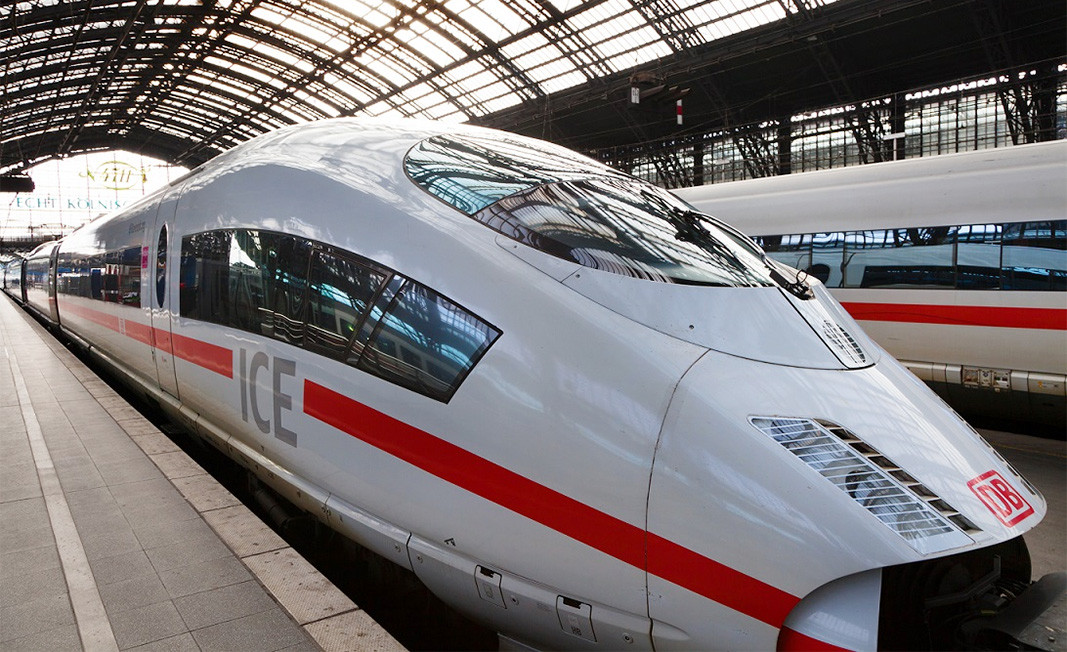2021 has been officially declared the European Year of Rail. One of the reasons for the European Commission's proposal to receive pan-European support in the EP is the effect this type of transportation would have on EU goals of achieving prosperous, competitive and climate-neutral economy by 2050. One of the most promising allies in this direction, with potential that has not yet been fully realized, is railway transport. Its use for the transportation of large numbers of passengers and big volumes of goods can reduce harmful emissions from other modes of transport by up to 70%.
"Perhaps the crisis has shown us that we are all interconnected, especially in such uncertain times," Anna Deparnay-Grunenberg, a German MEP from the Group of the Greens, said and added:

"We must decarbonise our mobility. We want to create rail connectivity index and make railway transport attractive. This index will show how fast we can move by train. A significant problem is that despite the 30 billion euros invested in the European rail network, it remains very fragmented. There are no good connections needed to complete the Trans-European network. We also want to introduce green label indicating the extent to which goods transported by this type of transport are more environmentally friendly. We also need enough information about the tickets we could provide by creating a common platform for their purchase.”

Pan-European plans for modernization of the railway network would have an effect on this country as well. Despite a 40% drop in the number of passengers in the past 2020, the railways remain an affordable option for transportation to different parts of Bulgaria. During the state of emergency and lock down, BDZ continued to offer its services without stopping any of the planned trains. In addition, the company achieved several important successes in its development and modernization. Konstantin Azov, head of Services and Sales at the Bulgarian State Railways (BDZ), told us more about them:
"We are proud of the purchase of the first new electric locomotives in 2020. For the first time in nearly 34 years, brand new locomotives have been bought. They are a total of 15. Two of them already run on the country's railway network and serve long-distance passenger trains. An ambitious repair program is also being implemented. Unfortunately, the Covid-19 crisis has imposed some delays, which I believe will be made up. During the crisis we managed to sign contracts totaling BGN 15 million (about 7.5 million euros) with two Bulgarian factories for the complete renovation of 15 train cars."

Mr. Azov has pointed out that an entirely new car costs about 1,800,000 euros, while those assembled in Bulgarian factories were about 3 times cheaper. Another convenience that passengers are already taking advantage of are the electronic boards at all stations, as well as a mobile application that tracks the movement of trains, the time of their arrival and the reasons for possible delays.

With the help of European funding BDZ hopes to be able to purchase another 20 high-tech railcars with a maximum speed of 160 km/h, which will run on the already rehabilitated lines and those that are currently being repaired. The company that takes care of the railway infrastructure plans to build an intermodal terminal at the Gorna Oryahovitsa hub station in northern Bulgaria, as well as to continue the renovation of the railway stations across the country.
English: Alexander Markov
Photos: bdz.bg, ruse-direct.eu, Facebook /Anna Deparnay-Grunenberg and archiveExactly a month after the Bulgarian National Radio solemnly celebrated its 90th anniversary, history continues its dialogue with us, its authors. With a special event on February 25, the exhibition "90 Years of the Bulgarian National Radio - The Radio..
Exactly 3 years ago, on February 24, Russia’s invasion of Ukraine began – an event that woke up Europe 77 years after the end of World War II and called into question one of the main goals of the EU – preventing a new armed conflict on the continent...
The festive service for the consecration of the new Bulgarian Orthodox church in London is led by His Holiness Daniil , Patriarch of Bulgaria, who also officiated at the Ressurection Vespers on Saturday. Hundreds of lay people-official guests and..
Exactly a month after the Bulgarian National Radio solemnly celebrated its 90th anniversary, history continues its dialogue with us, its authors. With a..

+359 2 9336 661
